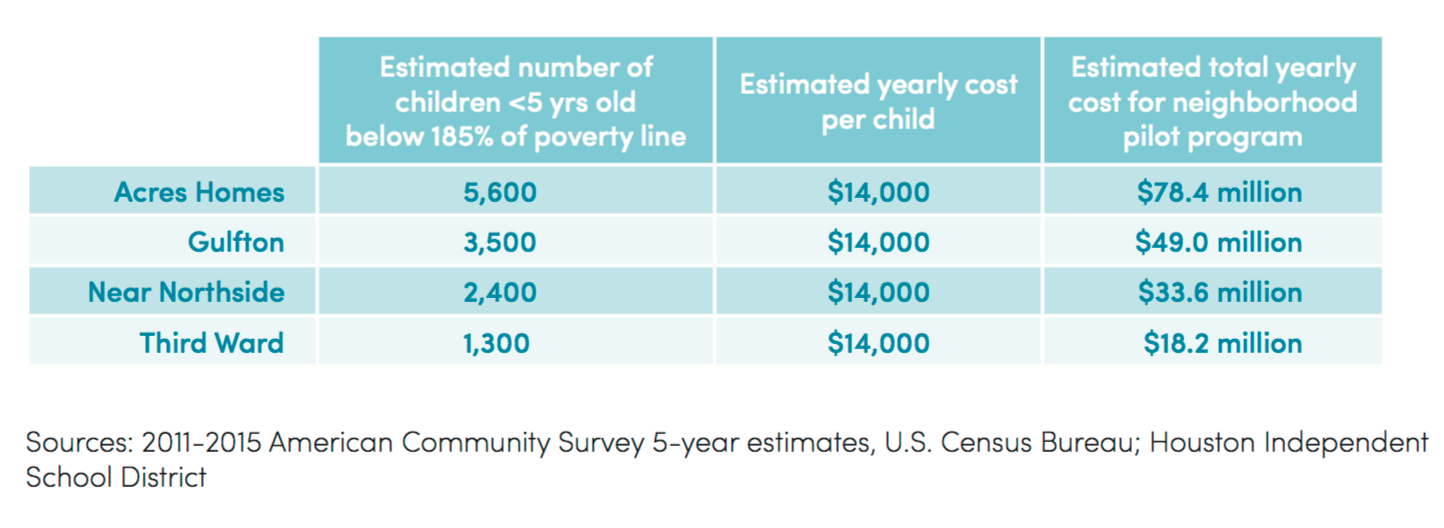When Sylvester Turner took office as mayor of Houston, he affirmed his commitment to creating an equitable city. He talked about creating "one Houston" and not a city of haves and have-nots. Now, a new set of recommendations from the mayor's equity task force provides a blueprint for the city to bridge that gap.
Though pension reform has dominated much of his tenure so far, Turner has also launched his Complete Communities initiative meant to coordinate and boost investment in five long underserved neighborhoods. But without dedicated funding, the rollout has brought questions. His administration also faces a lingering charge of fair housing violations after he effectively rejected a proposal to build a low income housing tax credit project in a wealthy part of town that expressed vocal criticism to the idea. Now facing the daunting task of recovery after Hurricane Harvey, equity is top of mind for many advocates.
In one of the most economically segregated cities in the country, the divide between the haves and have-nots is apparent. "While Houston ranks as the second-most prosperous city in the United States and the fifth fastest-growing, it only ranks 64th on a list of most economically inclusive cities," notes a recently released report from the task force, which included researchers from the Kinder Institute.
The task force generated a list of recommendations that took into account the city's financial constraints, including two specific aims: launching a jobs program with the goal of creating 20,000 new or improved jobs with family-sustaining wages by 2022 and piloting "a scalable early childhood education program that could reach up to 40,000 children by 2025," according to the report. The task force also offers metrics and strategies to track and coordinate investment aimed at increasing equity as well as changes to how the city raises raises and distributes funds.
Challenges
The problem is particularly pressing in Houston, argues the report, where roughly 23 percent of the population, and 35 percent of all children, live in poverty. Poverty contributes to a number of strains on individuals and the city, the report notes, estimating that evictions, unpaid taxes and utility bills cost the city $51 million to $117 million annually.
And though the city has touted its relatively low unemployment rate, the measure climbed above the national average in 2016. A more complete measure, the report argues, would also include underemployed workers.
These burdens fall unequally on Houston's residents.
Compounding a lack of investment at the neighborhood level, African American and Latino residents face additional challenges. African American and Latino children, for example, are nearly five times more likely to live in poverty than white children in Houston, according to the report. And African American and Latino workers are less likely than white workers to hold jobs that pay more than $45,000, according to the report. Women also earn 25 percent less than men's median wages in Houston.
Jobs
Because of state restrictions, the city is limited in its ability to raise the minimum wage. Instead, the report suggests instituting a "family-sustaining wage policy" or a roughly $15 minimum wage for the City of Houston's direct hires, contractors and subcontractors as well as companies and groups receiving funds, subsidies or preferential treatment from the City.
In addition, the report recommends requiring hiring policies of those same city-involved employers that advantage local residents in disadvantaged neighborhoods. Apprenticeships and training programs as well as expanding existing programs, like the Hire Houston Youth program, would also help connect residents to jobs.
Child care and education
In the absence of well-funded state or federal efforts to expand early childhood education, the report argues the city should take up the task with a pilot program, modeled on similar programs elsewhere. The proposed three-year program would provide scholarships to 1,500 economically disadvantaged children under the age of four in one of four Complete Communities pilot neighborhoods where the Collaborative for Children is also active.
Those scholarships would not only offer quality education to young children, but would allow parents to participate in the workforce by making child care affordable, the report argues.
The report also calls on the city to step up its investment in affordable housing and infrastructure and to change its own processes for addressing and tracking equity as well as raising and distributing city funds. For more recommendations and analysis, read the report here.

